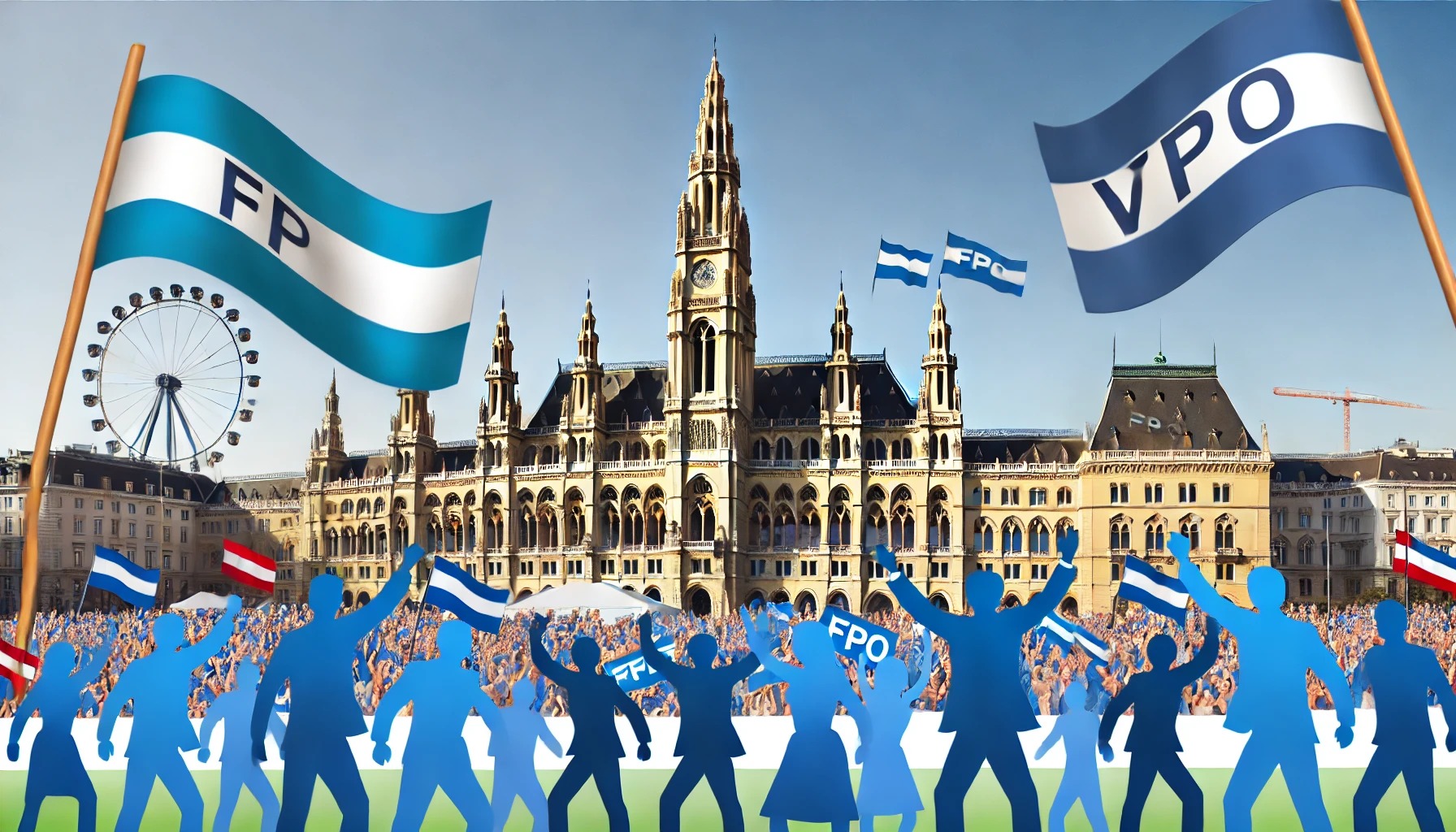FPO's Strong Showing Shifts Austria's Political Landscape
The Austrian Freedom Party (FPO), led by Herbert Kickl, won around 29% of the vote in Sunday’s parliamentary election, marking its highest-ever result. The far-right party built on public concerns over economic challenges and immigration, positioning itself as a major force in Austria’s politics. Although the FPO is poised to lead, forming a coalition will be difficult as other party leaders are hesitant to join under Kickl's leadership.
European Right-Wing Leaders Celebrate Win
The FPO is part of a right-wing group in the European Parliament, aligned with France's National Rally (RN). RN leader Marine Le Pen praised the result, interpreting it as part of a broader European trend favoring national sovereignty and conservative values. "This tidal wave... confirms the triumph of the people everywhere," Le Pen wrote on X (formerly Twitter).
Germany’s Alternative for Germany (AfD) leader Bjoern Hoecke called the FPO's win a "sensation," highlighting that the victory extends beyond Austria and represents positive momentum for right-wing movements in Europe.
FPO's Win Raises Concerns for the European Union
The FPO’s strong result may pose challenges for the European Union, particularly on issues of foreign policy such as support for Ukraine amid Moscow’s invasion. Kickl opposes sending aid to Kyiv, aligning with other Eurosceptic parties that have faced criticism for their stances on Russia. Earlier this year, Kickl formed a political alliance with Hungary's Fidesz party, led by Prime Minister Viktor Orban, who has been known to block or delay major EU decisions, including sanctions against Russia and aid for Ukraine.
Support Across Europe's Right-Wing Movements
Hungarian Foreign Minister Peter Szijjarto celebrated the FPO’s win, suggesting a growing trend among "patriots" across Europe. Dutch nationalist Geert Wilders, whose Party for Freedom (PVV) is a prominent right-wing voice in the Netherlands, also praised the result, framing it as a sign of change centered on identity, sovereignty, and tighter immigration controls.
Italy's Deputy Prime Minister Matteo Salvini from the League party hailed the election as a "historic day," pointing to a broader European desire for change around work, family, and security values.



 Dow Hits 50,000 as U.S. Stocks Stage Strong Rebound Amid AI Volatility
Dow Hits 50,000 as U.S. Stocks Stage Strong Rebound Amid AI Volatility  South Africa Eyes ECB Repo Lines as Inflation Eases and Rate Cuts Loom
South Africa Eyes ECB Repo Lines as Inflation Eases and Rate Cuts Loom  Trump Lifts 25% Tariff on Indian Goods in Strategic U.S.–India Trade and Energy Deal
Trump Lifts 25% Tariff on Indian Goods in Strategic U.S.–India Trade and Energy Deal  Dollar Steadies Ahead of ECB and BoE Decisions as Markets Turn Risk-Off
Dollar Steadies Ahead of ECB and BoE Decisions as Markets Turn Risk-Off  Russian Stocks End Mixed as MOEX Index Closes Flat Amid Commodity Strength
Russian Stocks End Mixed as MOEX Index Closes Flat Amid Commodity Strength  Silver Prices Plunge in Asian Trade as Dollar Strength Triggers Fresh Precious Metals Sell-Off
Silver Prices Plunge in Asian Trade as Dollar Strength Triggers Fresh Precious Metals Sell-Off  Dollar Near Two-Week High as Stock Rout, AI Concerns and Global Events Drive Market Volatility
Dollar Near Two-Week High as Stock Rout, AI Concerns and Global Events Drive Market Volatility  RBI Holds Repo Rate at 5.25% as India’s Growth Outlook Strengthens After U.S. Trade Deal
RBI Holds Repo Rate at 5.25% as India’s Growth Outlook Strengthens After U.S. Trade Deal  Trump’s Inflation Claims Clash With Voters’ Cost-of-Living Reality
Trump’s Inflation Claims Clash With Voters’ Cost-of-Living Reality  China Extends Gold Buying Streak as Reserves Surge Despite Volatile Prices
China Extends Gold Buying Streak as Reserves Surge Despite Volatile Prices  Global Markets Slide as AI, Crypto, and Precious Metals Face Heightened Volatility
Global Markets Slide as AI, Crypto, and Precious Metals Face Heightened Volatility  India–U.S. Interim Trade Pact Cuts Auto Tariffs but Leaves Tesla Out
India–U.S. Interim Trade Pact Cuts Auto Tariffs but Leaves Tesla Out  Japanese Pharmaceutical Stocks Slide as TrumpRx.gov Launch Sparks Market Concerns
Japanese Pharmaceutical Stocks Slide as TrumpRx.gov Launch Sparks Market Concerns  South Korea’s Weak Won Struggles as Retail Investors Pour Money Into U.S. Stocks
South Korea’s Weak Won Struggles as Retail Investors Pour Money Into U.S. Stocks  Gold Prices Slide Below $5,000 as Strong Dollar and Central Bank Outlook Weigh on Metals
Gold Prices Slide Below $5,000 as Strong Dollar and Central Bank Outlook Weigh on Metals  Trump Signs Executive Order Threatening 25% Tariffs on Countries Trading With Iran
Trump Signs Executive Order Threatening 25% Tariffs on Countries Trading With Iran  Gold and Silver Prices Rebound After Volatile Week Triggered by Fed Nomination
Gold and Silver Prices Rebound After Volatile Week Triggered by Fed Nomination 































